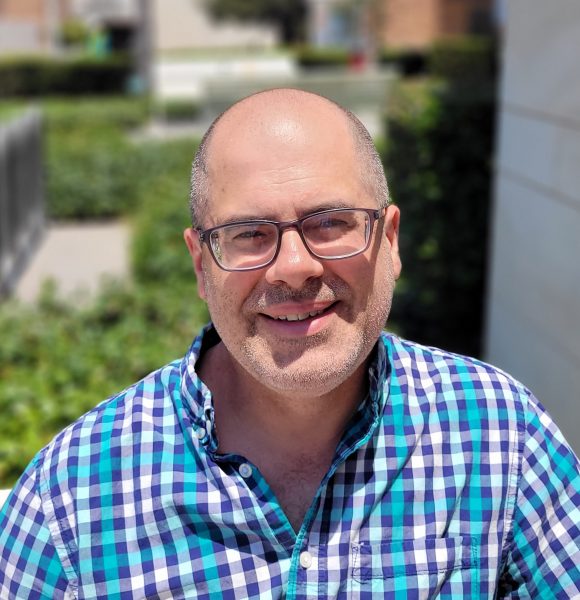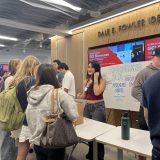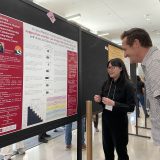Welcome New Schmid Faculty — Daniel Dries
Announced on September 8, 2024
 Please join us in welcoming Daniel Dries (he/him) to Schmid College of Science and Technology. Dries will serve as a Assistant Professor of Chemistry and Chemistry Education Research.
Please join us in welcoming Daniel Dries (he/him) to Schmid College of Science and Technology. Dries will serve as a Assistant Professor of Chemistry and Chemistry Education Research.
Born and raised in southeastern Pennsylvania, Dan earned his BS with Honors in Biochemistry from the University of Delaware. Dan then earned his Ph.D. in Biomedical Sciences from UC San Diego before taking a postdoctoral fellowship in Neuroscience at the University of Texas Southwestern Medical Center in Dallas, Texas. Dan recently came to Chapman as a Chemistry Education Researcher, having previously been Chair of Chemistry at Juniata College, a small liberal arts college in central Pennsylvania. He is a strong advocate for active learning – in particular, constructivist pedagogies – and he has experience with alternative forms of assessing and evaluating student learning. His scholarly work includes using social comparison theory to understand STEM identity, using self-determination theory to understand student motivation, and examining learned helplessness and mindset as a framework to better understand student motivation and persistence in STEM.
Q&A with Dan Dries, Assistant Professor of Chemistry and Chemistry Education Research
Q: What role were you in before this one?
A: I was an Associate Professor and George Foster Endowed Chair of Chemistry at Juniata College, a small liberal arts college 30 miles south of Penn State University.
Q: What is your current area of research — and why are you passionate about it?
A: I am currently investigating the wide variety of factors that go into a student’s ability to succeed in STEM classrooms and in STEM majors. Through interactions with — and stories from — my friends, peers, colleagues, students, and my own lived experience, I understand that a student’s grade reflects more than just the ability to learn. COVID brought this clearly into focus, as the various members of learning environments – from students and facilitators to instructors and staff and administrators – tried to balance the demands of class with the personal and professional responsibilities that nevertheless impact our ability to bring our best selves into the classroom. My research, then, seeks to better understand the motivations and behaviors of students and instructors alike so that we can better structure those learning spaces into places where all can demonstrate their ability to succeed.
Q: What are you looking forward to most this semester?
A: I have always loved the anticipation of the fall semester, even as a child: the start of the school year, the beginning of football and hockey seasons, and the approaching holidays. Doubly exciting is the anticipation of a fall semester in a new place: new folks, new students, and the anticipation of engaging in collaborations on new projects.
Q: Schmid College believes that the best science happens when diverse individuals are supported, included and empowered to share their voices as a part of scientific discovery. What do diversity, equity, and inclusion mean to you?
A: Diversity is important; as Marian Wright Edelman famously stated, one cannot be what one cannot see. But diversity for the sake of diversity is akin to compliance, especially if those voices are minimized, blocked out, and ignored. Inclusion is the next step, where members of a community actively seek input from all identities who participate in the community. Importantly, inclusion is not lip-service, but rather folks re-examining the norms and assumptions that underlie our policies and practices, and being receptive to those whose voices and identities are inherently excluded because of those policies and practices. But diversity and inclusion are not enough. Equity, then, is the ideal, what I believe we should all aspire to: equitable outcomes for all, regardless of the myriad identities we hold. I say ideal, not because it is an impossibility, but because it is currently a reality: the social, historical, political, and economical structures that we have today inherently reflect the demographics of those who held power when creating those structures. I am optimistic that our collective good will can and will create a more equitable system if we engage in open and self-reflective dialogue with one another with the express interest of truly hearing from and uplifting one another.

